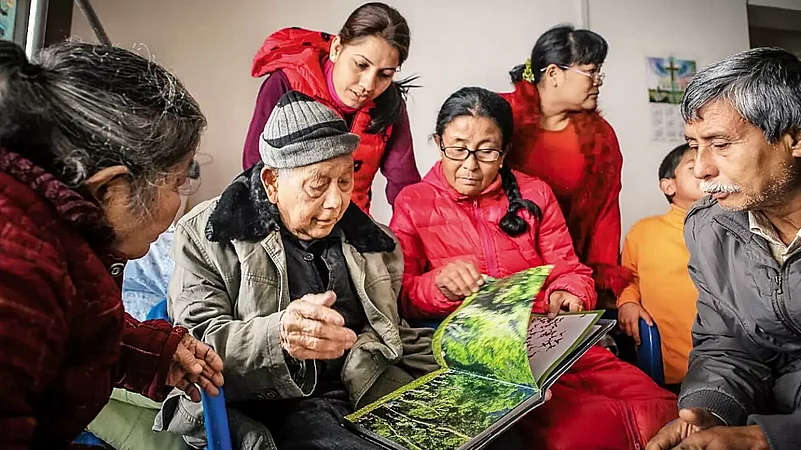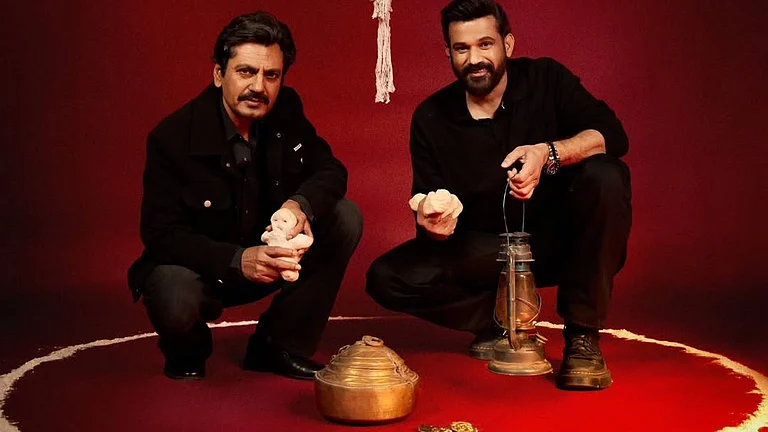The Separation
I was a six-year-old child when I got separated from my parents during the Sino-India war in 1962. Hailing from the Chinatown of Makum in Assam’s Tinsukia district, my parents, like many others, were sent to the Deoli Internment camp in Rajasthan during the war by the Indian authorities. After a few years, they were deported from the camp to China. It took me 53 years to reunite with my parents. Now 65, and a mother of two, as I recall my days of separation and reunion caused by a war, I try to re-live my childhood.
I wish I could run faster and see better. There was fog and darkness when my tiny hand was holding a finger of my maternal aunt’s hand. Our destination was the Makum Railway Station, 4 km from home. It was a cold December morning in 1962. We had to catch a train to Rajasthan. Along with me were my two little sisters. When the train arrived, my aunt took her hand away and tried to get my little sisters on the train first. Suddenly, there were a lot of people waiting for the same train and started pushing past me to get on it. I tried hard to push myself in. But after a while, the train started moving without me. It was a train to Deoli in Rajasthan where my parents were staying in the internment camp along with fellow Chinese since the war between India and China broke out. When the local police came searching for my parents in Rangagora tea estate, I was at my grandparent’s house. They whisked away my parents, along with many others in the community. My father, Leong Kok-hoi, was a Chinese man in his 30s who came to Tinsukia as a tea garden labourer in 1956. But my mother, Chanu, was a Mizo woman. However, due to her facial appearance, the police took her for a Chinese and put her in the camp.
Unlucky
When the war got over in the last week of November 1962, my aunt, who was also kept in a nearby prison, came back home. She wanted my sisters and me to reunite with my parents. But I was not as lucky as my sisters. Since I missed the train, I started living with my aunt in Makum. Most of my neighbours, who were taken to the Deoli camp, did not come back to Tinsukia. I lost many of my friends in the process. Later, I heard that two years after the war, in 1964, a large ship came from China to take those Chinese people living in camps back to China. My parents, in 1964, got on one such ship.

I was given an Assamese name by one of my uncles in Tinsukia. My Assamese name was Pramila Das. I went to an Assamese school in Makum since the only Chinese school in the locality was converted into a Hindi-medium school after the war. I started working in the tea garden when I was 14. Every day, I prayed to see my parents.
Reunion
In 1990, I received the first letter from my father who was living in Guangzhou province of China. But he claimed that he had written to me ever since he reached China. Yet, over the last 30 years, from 1962, I never received any such letters. When I got the first letter, I became hopeful about getting to meet my parents once again. But the wait was long. It was only in 2015 that I met an author called Rita Chowdhury. She was writing a novel on the wartime sufferings of the Chinese community in Assam. With her efforts and the help of many others, finally, after 53 years, I got to see my parents. I always had this picture of them in my mind as young, happy and giggling while working in the tea gardens. But when I met them, they were old and fragile, which made me very emotional. I stayed with them for a month. Every day, I listened to their stories of the Deoli camp, about how they missed me but had to go back without me.
Hope
My father said that he could die in peace, now that he had met me. In 2019, he passed away. My mother, though Mizo, still lives in China. My two sisters got married to Chinese men there. I now live with my family in the Kehung Tea Estate of Tinsukia. I regularly talk with my mother over the phone. I hope to bring her to India someday.
(This appeared in the print edition as "Reunion Diary")
(As told to Syeda Ambia Zahan)
Leong Linchi lives with her extended family in Tinsukia, Assam





















